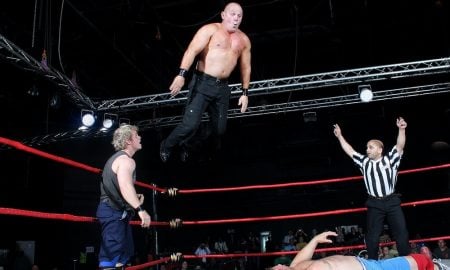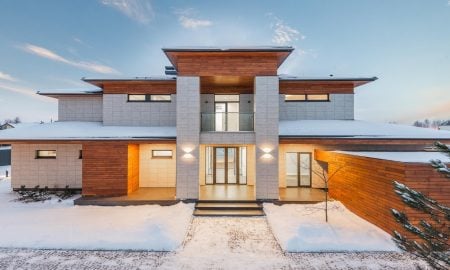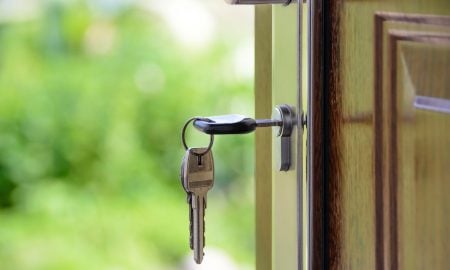
Delaying Homeownership Could Hurt Millennials’ Financial Security After Retirement

Millennials have plenty of things to worry about including student loans, career, love life, and much more. However, there’s one thing they aren’t thinking about as much as they should be: homeownership.
Young adults might consider it too early to look into mortgages but experts warn that delaying homeownership could become a serious roadblock in their financial security after retirement.
Decline in Homeownership Rate
Buying a home is one of life’s biggest commitments (both emotionally and financially) so, it’s natural to have cold feet – especially if you’re a first-time homeowner.
However, according to a recent investigation by Stanford Center on Longevity, homeownership is not the same as it once was. A deeper look into the housing trends for different generations revealed that homeownership rate has dropped to its lowest in 50 years, at 63 percent!

According to a recent investigation by Stanford Center on Longevity, homeownership rate has dropped to 63 percent, which is the lowest in 50 years
The investigation showed that millennials, between the ages 18 and 35, were the biggest reason behind this decrease and were far less likely to become homeowners in comparison to the older generations.
Research scientist Tamara Sims explained that only 35.8 per cent of the early millennials, aged 30 or above, are homeowners while the remaining 64.2 percent have yet to buy their own house. On the other hand, homeownership was a lot more common among baby boomers when they were 30, 48.3 percent of whom already had their own home by that age, whereas 51.7 percent didn’t.
The research clearly shows that most millennials are currently focusing on other things and homeownership is not one of their immediate priorities. It’s important to take note of factors affecting their financial decisions, especially regarding matters as important as owning a house and securing a stable financial future after retirement.
Reasons For Delay In Homeownership
There are several factors affecting millennials’ likelihood to become homeowners, with student loan debt being the biggest one of them. Student debt has soared to $1.5 trillion as off 2018 and is one of the biggest hurdles in the way of millennials trying to enter the housing market. Most people think that they are free from all financial burdens once they graduate from college.

After graduating, millennials are still harrowed by college debt, making it hard for them to prioritize homeownership.
However, they find themselves buried in student loans for years after leaving college. Student debt now averages at $30,000 per household, a sharp increase from $16,000 in early 1990’s. In a span of less than three decades, the average loan amount has almost doubled, which explains why millennials are having a hard time prioritizing homeownership.
The research also stated that those who are still paying down their student debt by the age 30 are 32 per cent less likely own a house than those who don’t have student loans to pay off.
Another reason why millennials are delaying homeownership is that young adults are not in a hurry to settle down. Tying the knot ultimately means getting a house, having children and raising a family.

More and more millennials are delaying marriage and taking their time in settling down
But times have changed drastically and millennials are no longer in a rush to settle down. Instead, they are choosing financial security and professional success over the prospect of having children. Less than 60 years ago, the average age for tying the knot was early 20s. Fast forward to today and that number is close to 30.
According to a study by Urban Institute, the average share of married couple with kids, between the age 18 and 34, was around 37 per cent in 1990s but the share significantly declined to 25 percent in 2015.
In 2011, a Pew Research Center found that the marriage rate decreased from 72 percent in 1960 to just 51 percent in 2010 as more and more people are choosing to live alone or in cohabitation rather than getting married. It is important to note that by 2010, the number of married people, between the ages 18 and 29, dropped to 20 percent compared to 59 percent in 1960.
Effects On Their Future
So what has all of this got to do with your future? Sims explained that purchasing a house in your 50s or 60s may hurt you financially as you’ll be spending most of your retirement savings on paying off the mortgage. In short, young adults who aren’t thinking about becoming homeowners any time soon are facing a financially unsecured future.
Opting to own a house as early as possible will benefit millennials in the long run. While it is important to think of other immediate expenses, it is also crucial to plan ahead and prioritize building a comfortable nest egg for your golden years – and buying a house is the first step towards smart retirement planning.
More in Business
-
Why American Consumers Are Falling Behind on COVID-Era Debt
When the world was grappling with the health crisis brought on by COVID-19, the U.S. economy faced an equally formidable challenge:...
November 27, 2023 -
Dr Dre and Ex-Wife Nicole Young Finalise $100m Divorce Settlement
After months of legal proceedings, Dr Dre, the legendary rapper, producer, and businessman, officially brought his tumultuous divorce from ex-wife Nicole...
November 22, 2023 -
5 Tell-Tale Signs That It Is Time to Say Goodbye to Your Current Job
Are you feeling like your job is more like a ball and chain than a fulfilling career? The daily grind, the...
November 19, 2023 -
WWE Signs $1.4 Billion Broadcasting Contract for SmackDown
In an explosive turn of events, World Wrestling Entertainment (WWE) has just unleashed some earth-shattering news for its legions of fans....
November 9, 2023 -
Navigating the Mortgage Maze as Interest Rates Take a Historic Leap
The U.S. housing market is nothing short of a dynamic entity. It evolves, reacts, and sometimes, just like the current real-estate...
November 3, 2023 -
Celebrity Couples Where the Woman Has a Higher Net Worth
In a world where gender roles and financial dynamics constantly shift, it’s not unusual to find celebrity couples where the woman...
October 27, 2023 -
Why the Gender Pay Gap Could Be Worsening
Picture this: Two college students, Alex and Charlie. Both are bright, have the same interests, and are ready to embrace the...
October 19, 2023 -
JC Penney’s Remarkable $1 Billion Revival Plan
In a remarkable turnaround, JC Penney unveiled a bold $1 billion revival plan, breathing new life into a brand that faced...
October 12, 2023 -
Shattering the American Dream: Mortgage Rates, Inflation & Cost of Living
You know that feeling when you are dreaming of something you have wanted for so long, only to watch it vanish...
October 6, 2023















You must be logged in to post a comment Login